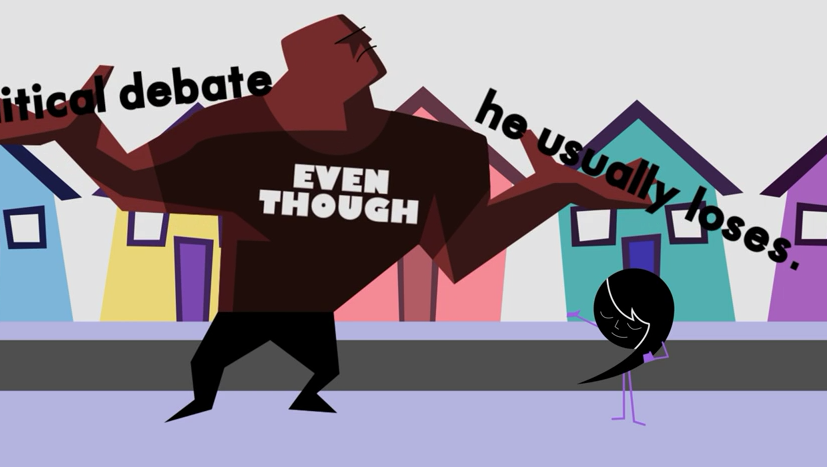Commas are tricky things, especially when subordinates and conjunctions are involved.
逗號的運(yùn)用是很講究技巧的,尤其是當(dāng)從屬關(guān)聯(lián)詞和連詞也一并參與其中的時候。
If you can remember a few basic rules, a simple law of physics, and some common scenarios, you will be able to use commas correctly.
只要你記得一些基本的規(guī)則,一個簡單的物理定律和一些常見的情況,你就可以正確的使用逗號了。
I like to think of the different parts of our sentence as characters.
我喜歡將句子的不同部分比作成不同的角色。
Let's meet a few of them: the tiny conjunctions, the mighty subordinates, and the clever comma.
讓我們來會會他們中的幾個吧:渺小的連詞,力大無比的從屬關(guān)聯(lián)詞,還有聰明的逗號。
Conjunctions are small and nimble.
連詞很小且機(jī)靈。
They are words that connect clauses, words, and phrases.
他們連接從句、單詞和短語。
You can easily remember the conjunctions by remembering the acronym FANBOYS.
你將可以輕松記住連詞,只要記住首字母縮略詞——星戰(zhàn)男孩。
The conjunctions are for, and, nor, but, or, yet, so.
這些連詞有for(為了;因為;給;至于)and(和)nor(也不;也不是)but(但是)or(或者)yet(然而)so (所以)。
Because they're so small, more often than not, they require the help of a comma but not always.
因為他們太小了以至于常常他們需要一個逗號的幫助,但并非總是如此。
Subordinates, on the other hand, are the WWE heavyweight champions of sentences.
從屬關(guān)聯(lián)詞是句子世界中的“職業(yè)舉重比賽冠軍“。
They are words that connect two unequal things, dependent and independent clauses.
他們能夠連接兩個不等同的事物:從句和主句。
Subordinates make it very clear what is being prioritized in a sentence.
從屬關(guān)聯(lián)詞讓人一下就看出來句子中的重點(diǎn)在哪里。
Commonly used subordinates are although, because, before, however, unless, and even though.
常見的從屬關(guān)聯(lián)詞有although(盡管)because(因為)before(在...之前)however(然而)unless(除非)以及 even though(雖然,即使)。

Because subordinates are all about power, they can do a lot of heavy lifting by themselves.
因為從屬關(guān)聯(lián)詞和”力量“有關(guān)他們自己就能完成很多舉重的活。
But, of course, sometimes even the strongest among us needs some help from our clever friends.
但毫無疑問,即使是我們當(dāng)中最強(qiáng)壯的從屬關(guān)聯(lián)詞有時也需要來自我們聰明小伙伴的幫助。
Because our clever comma is so nice, she often roams her neighborhood looking for some community service to do.
因為我們的聰明的逗號十分的善解人意她經(jīng)常在小區(qū)周邊漫步尋找一些社區(qū)服務(wù)的機(jī)會。
Today, as soon as she leaves her house, she sees a subordinate lifting the weight of two complete sentences, one on each arm.
今天,她一離開家她就看到一個從屬關(guān)聯(lián)詞正扛著兩個完整句子手臂兩邊,一邊一個。
Bartheleme loves engaging in political debate even though he usually loses.
巴爾特鐘情于政治爭辯即使他經(jīng)常失敗。
The comma asks the subordinate if he needs help.
逗號便問從屬關(guān)聯(lián)詞是否需要幫助。
Well, we know that subordinates are the WWE heavyweight champions of sentences.
正如我們所知,從屬關(guān)聯(lián)詞們都是句子世界中的”職業(yè)舉重比賽冠軍“。
They can easily hold the weight of these two complete sentences because they are distributed evenly on both arms.
他們能夠輕松地舉起兩個完整的句子因為句子的重量被均勻的分配在了一雙手上。
So, when the comma asks if it can help, the subordinate is appalled at the idea of needing assistance.
所以,當(dāng)逗號問及是否需要幫助的時候從屬關(guān)聯(lián)詞詫異于他需要援助的想法。
No thanks, maybe next time!
“不,謝謝,下次再說!”
So, the comma continues on.
所以,逗號繼續(xù)上路了。


